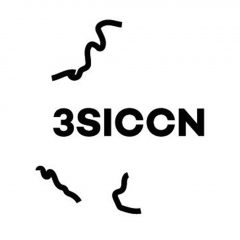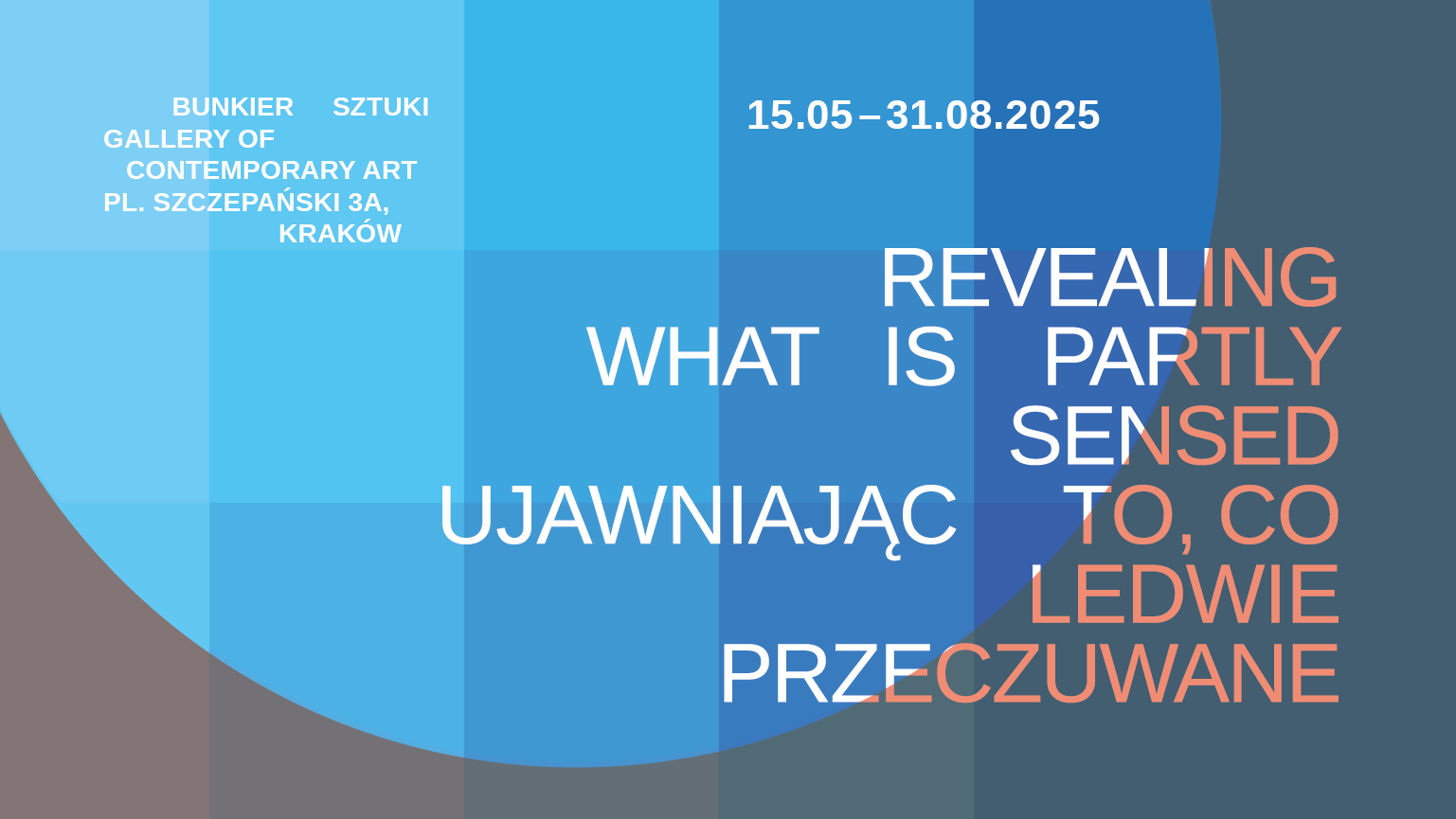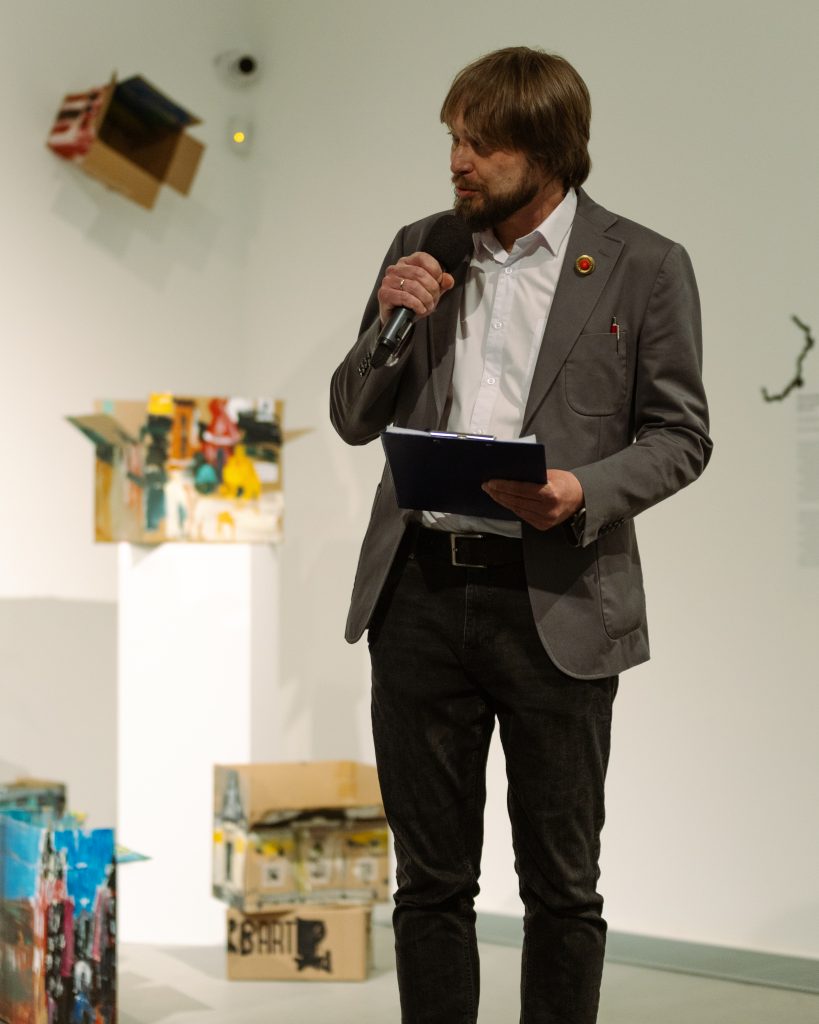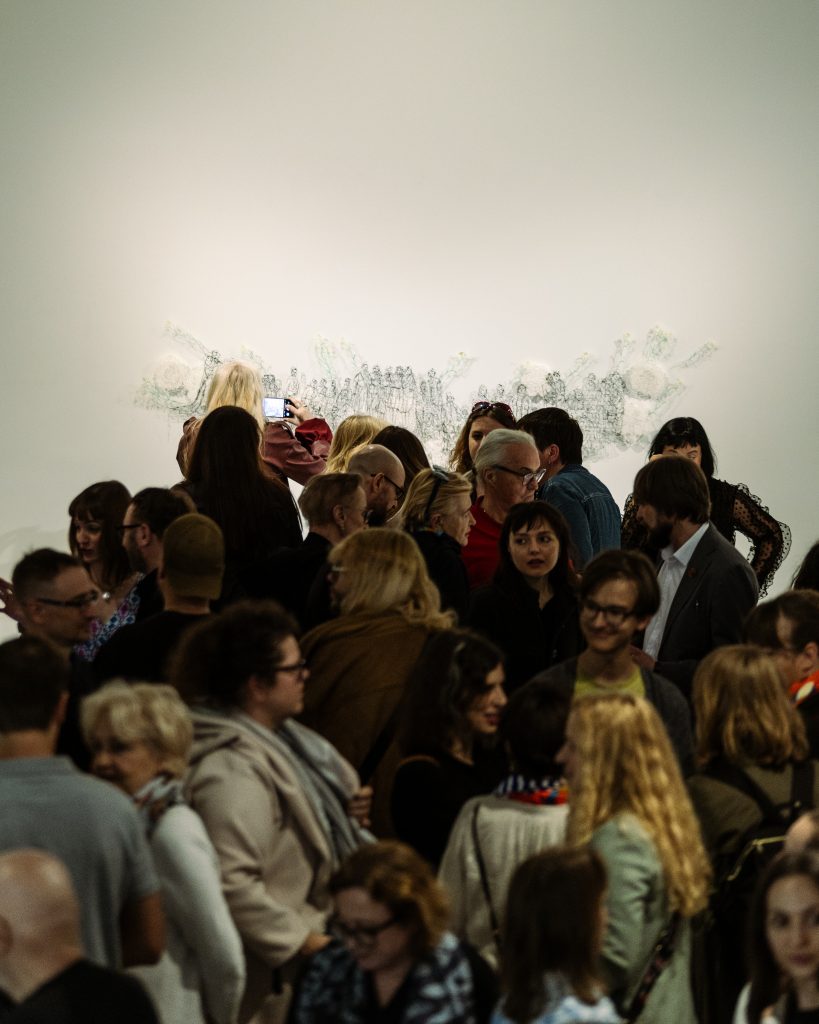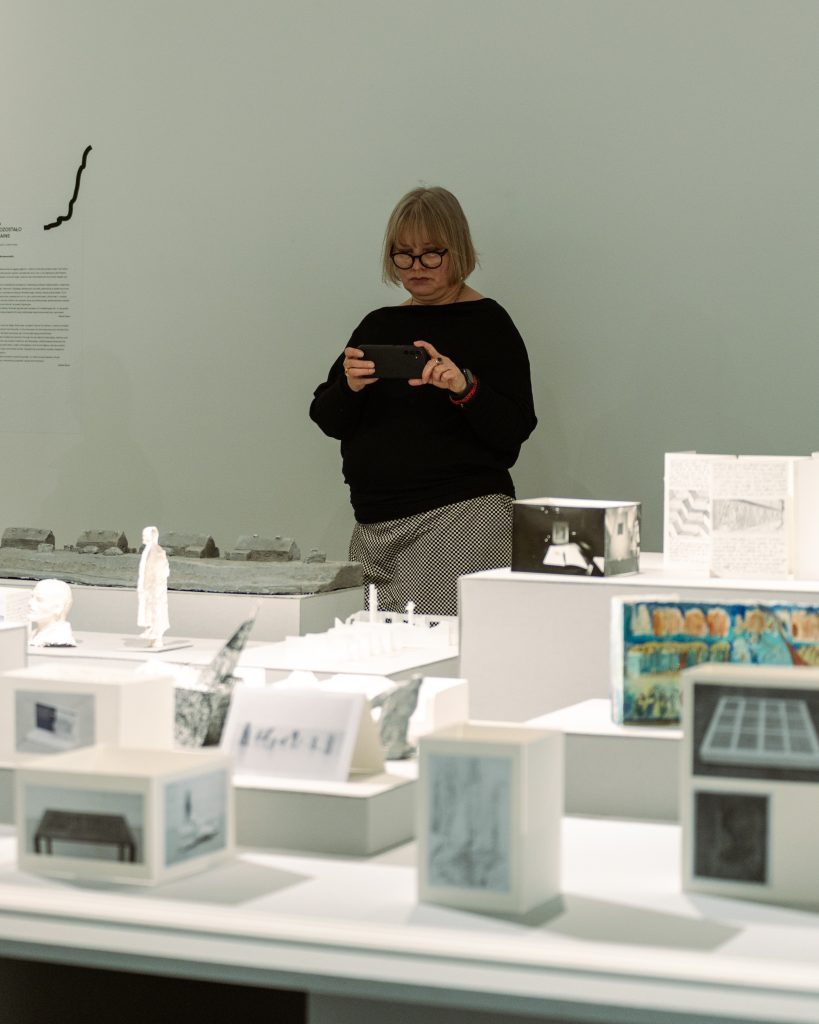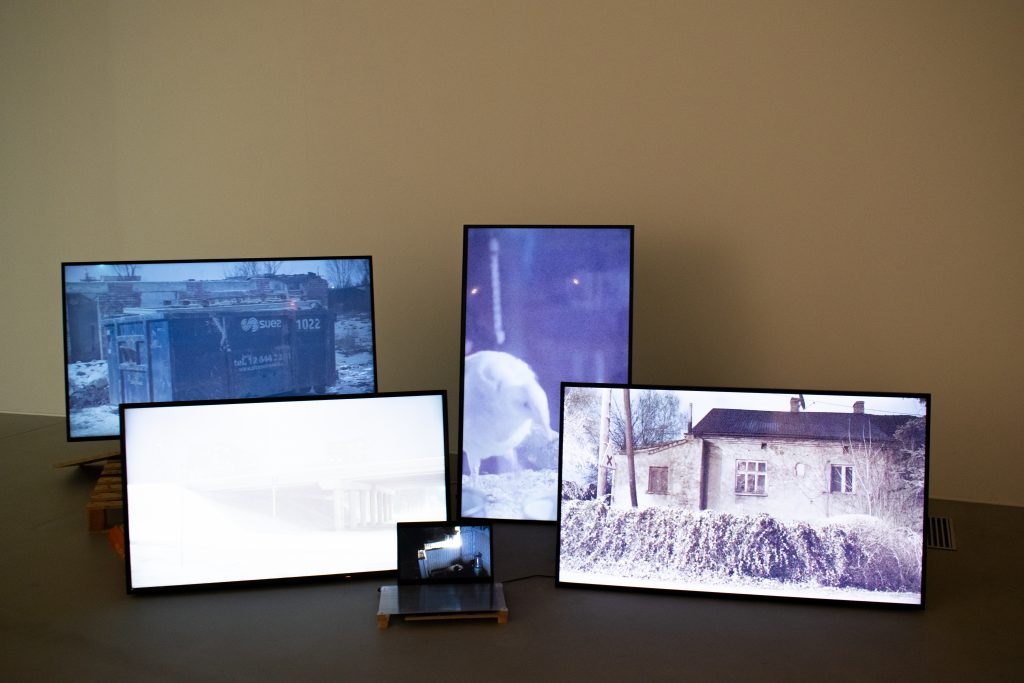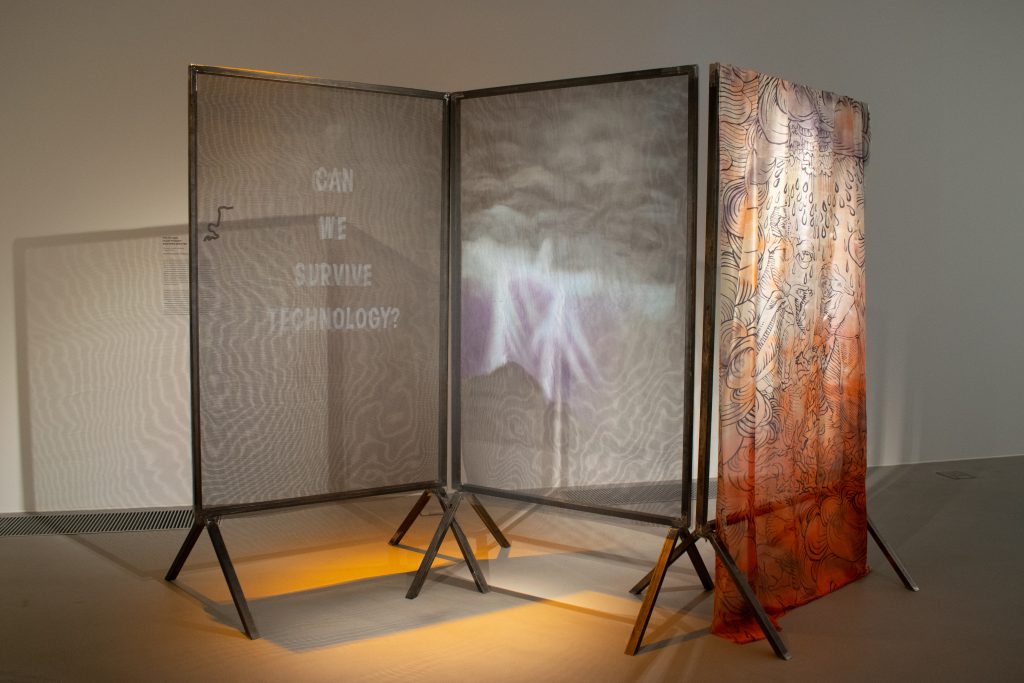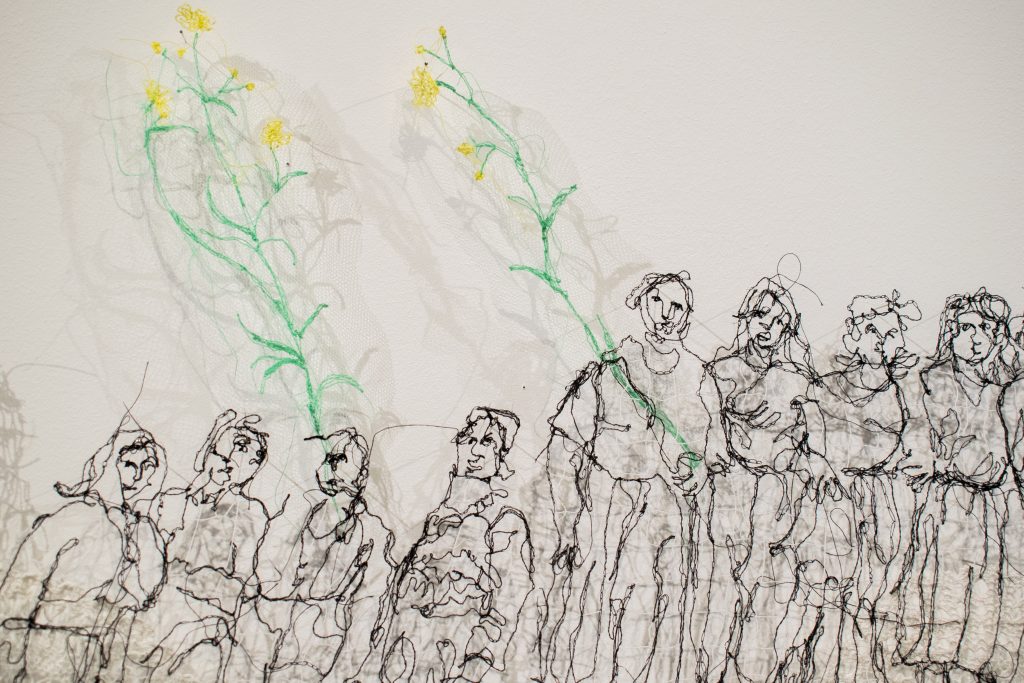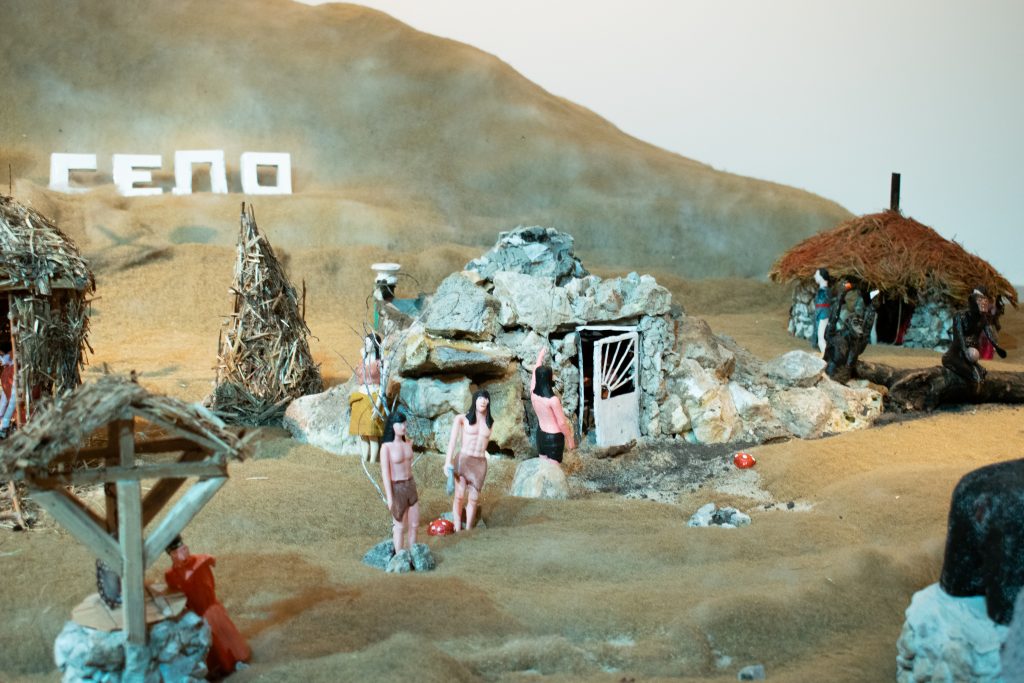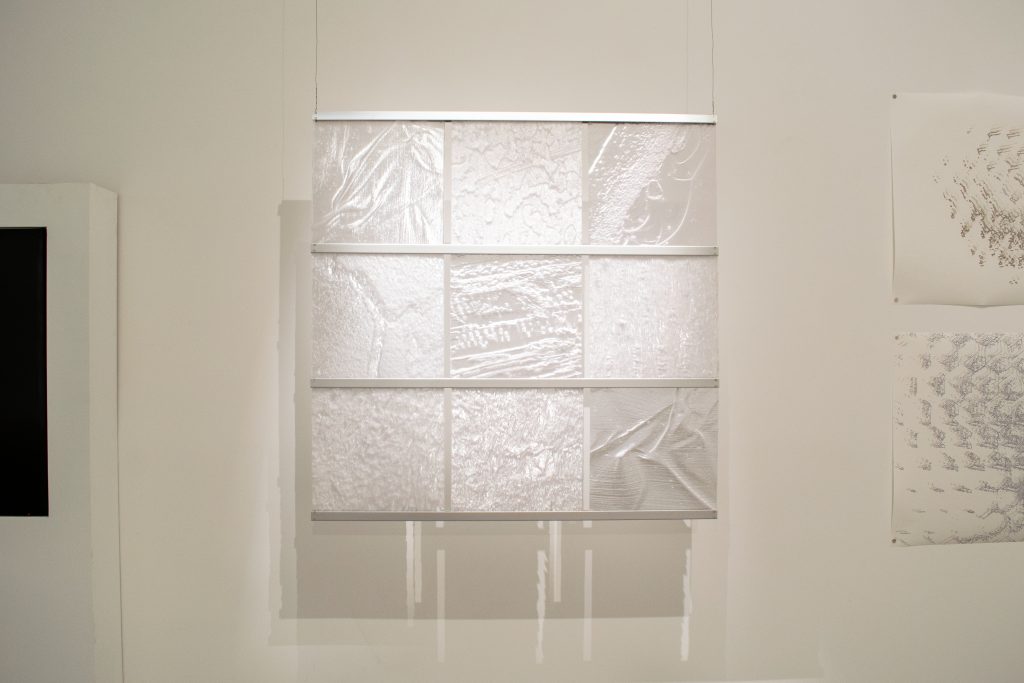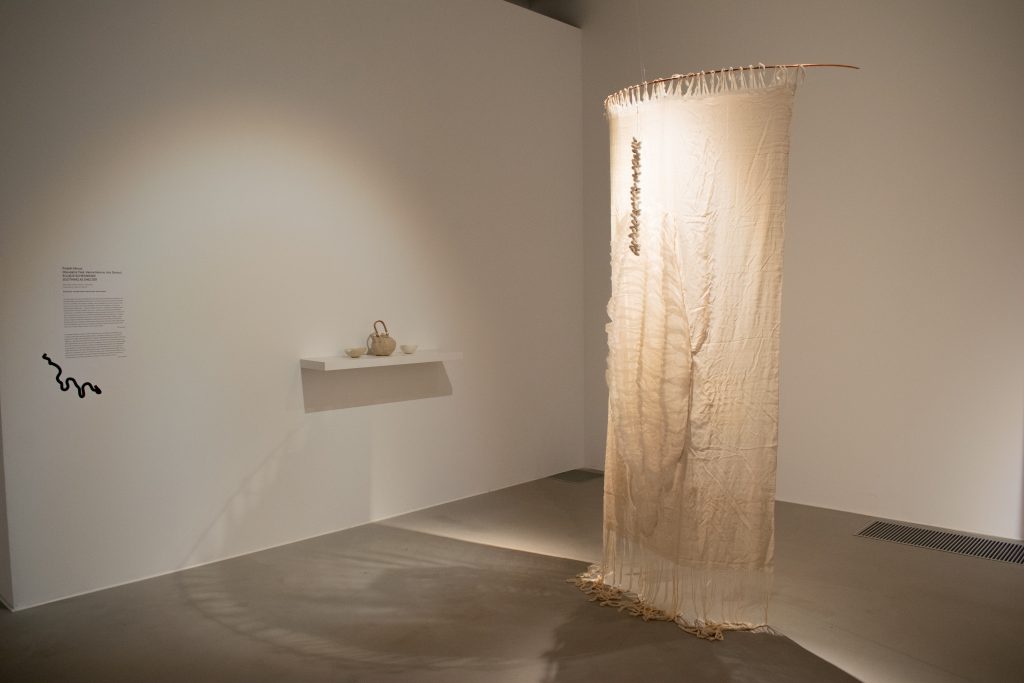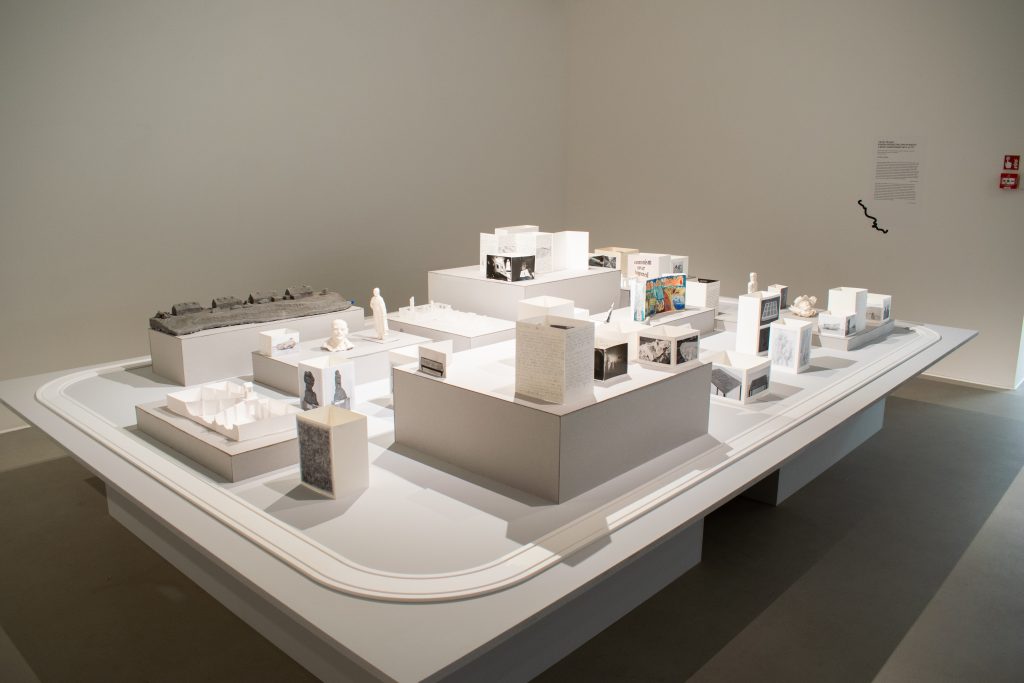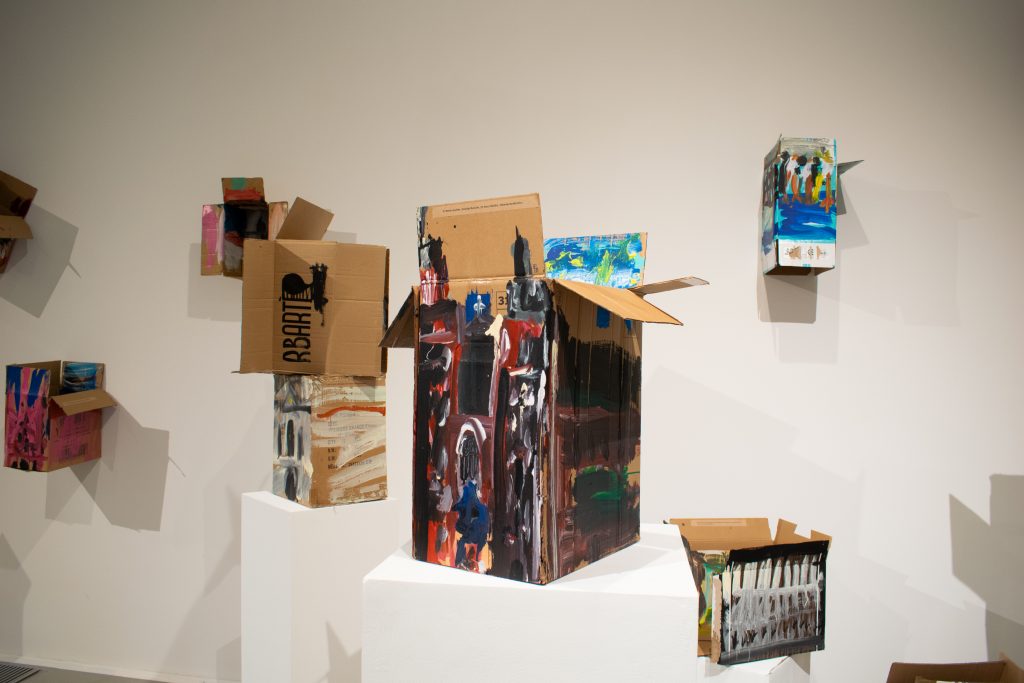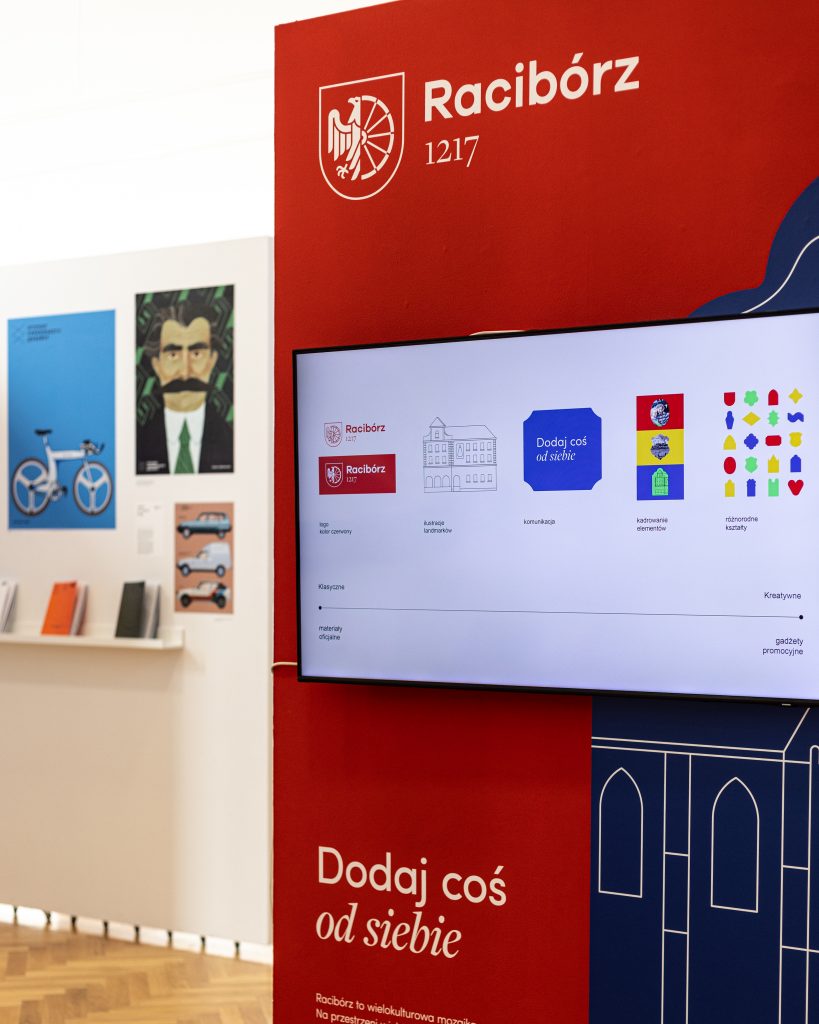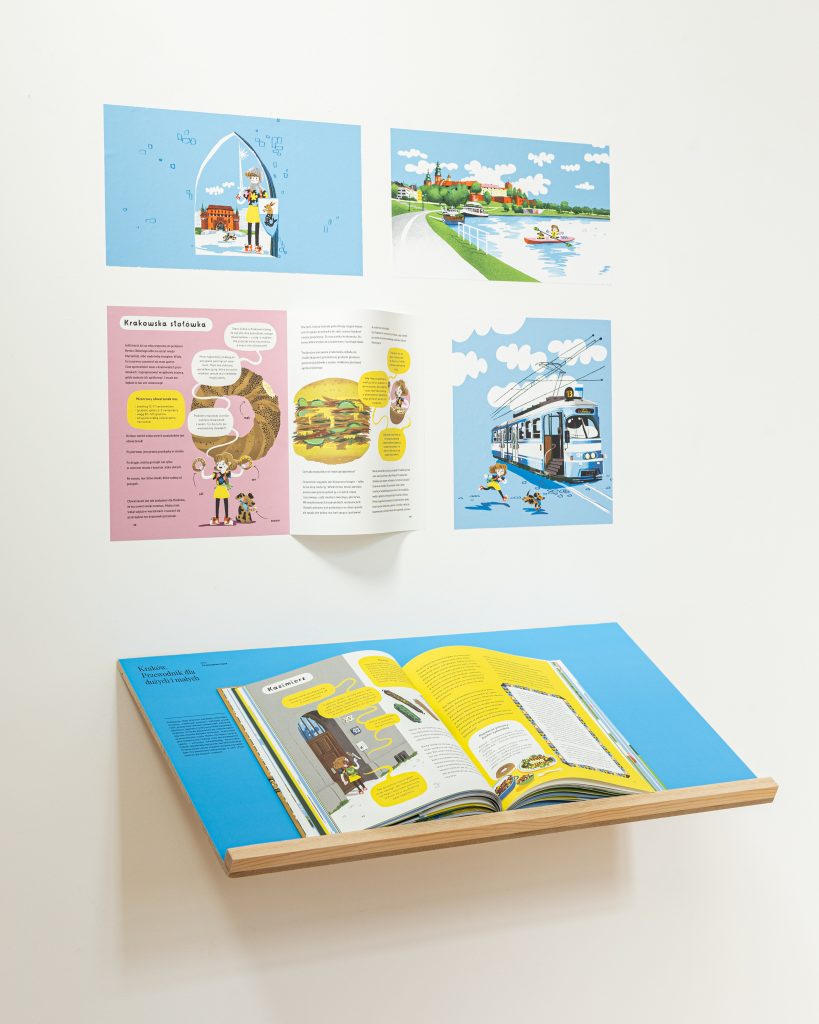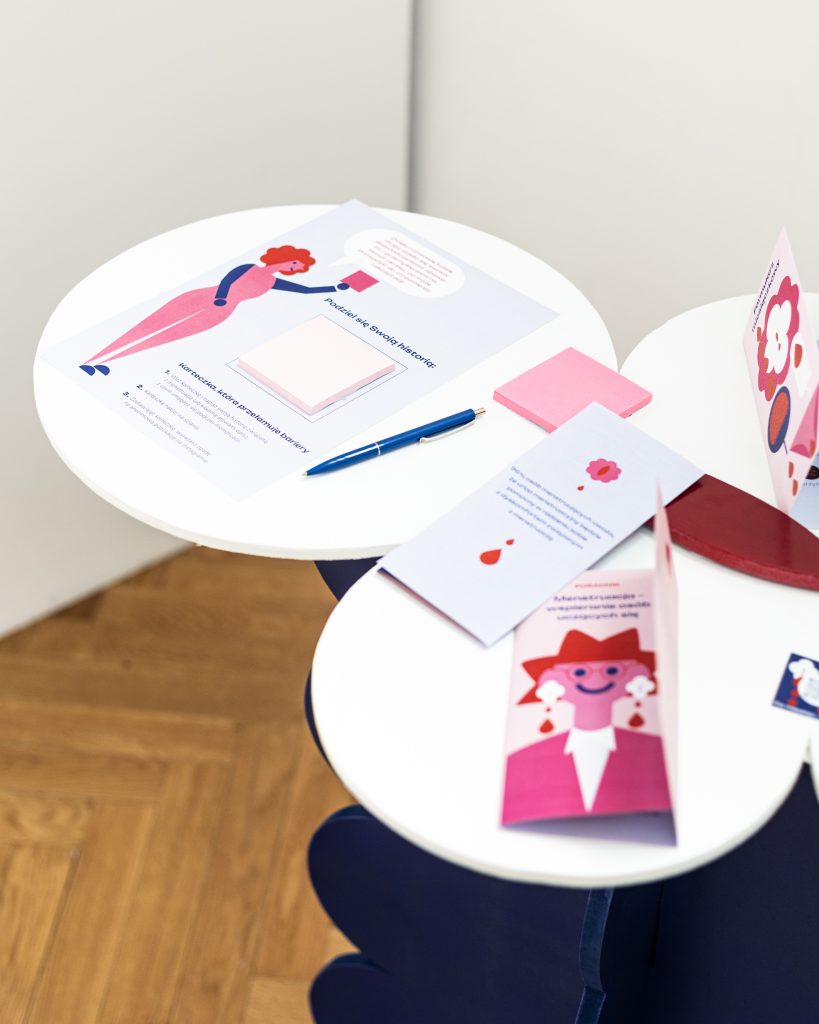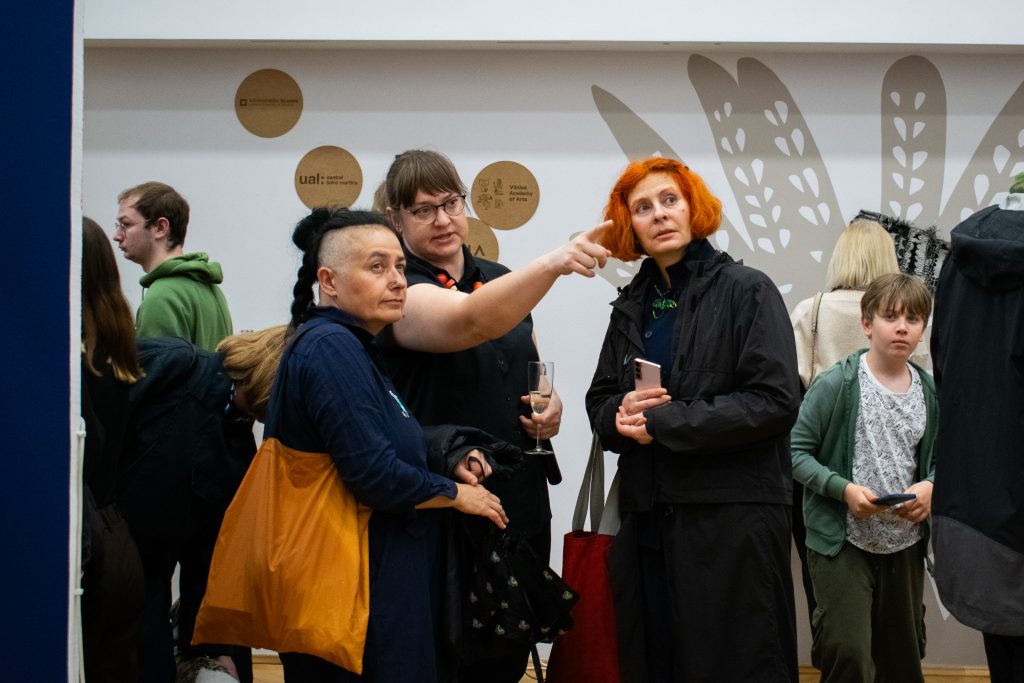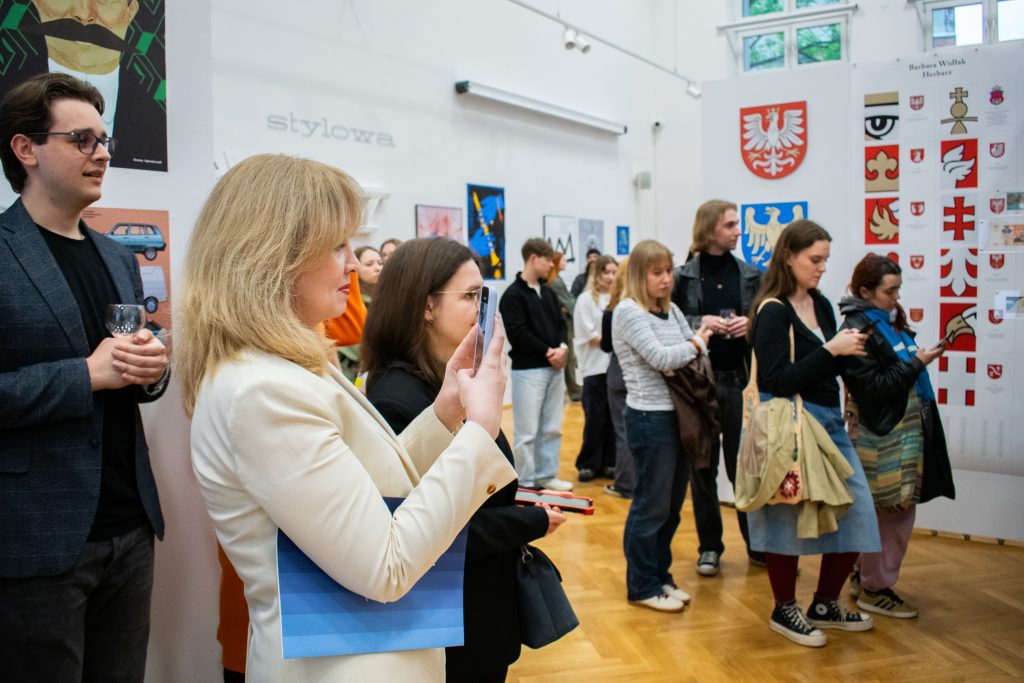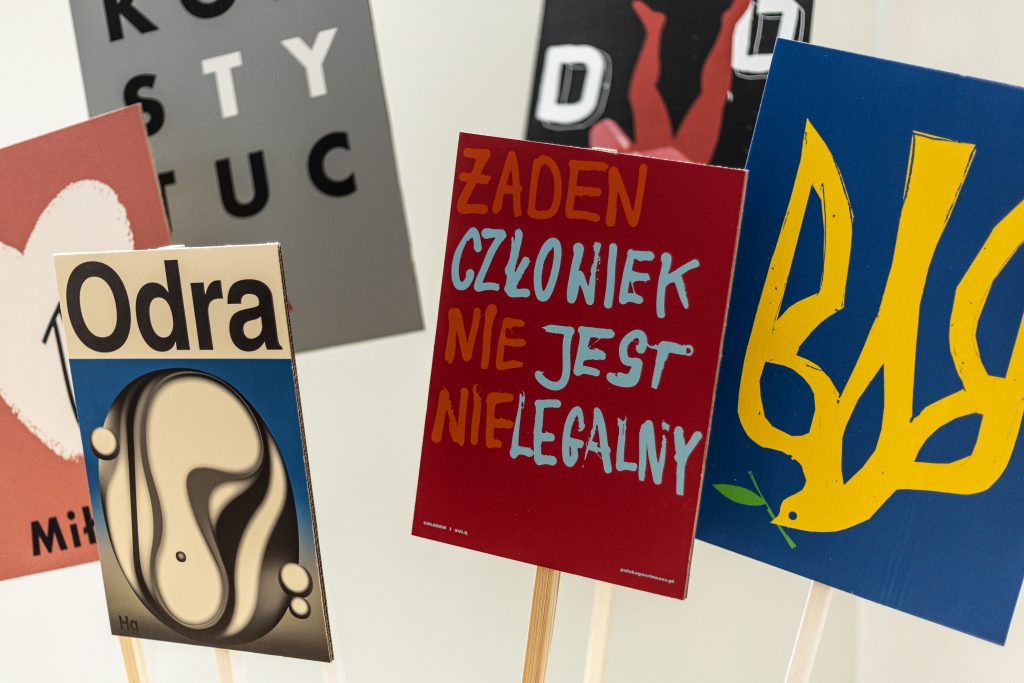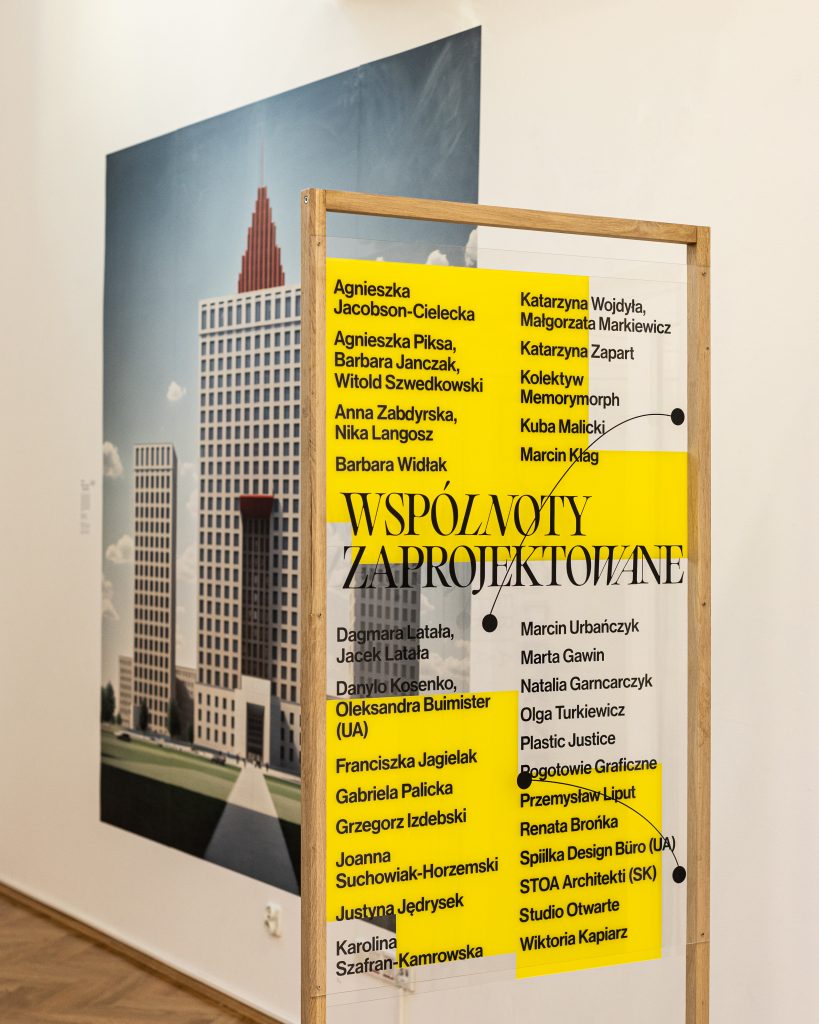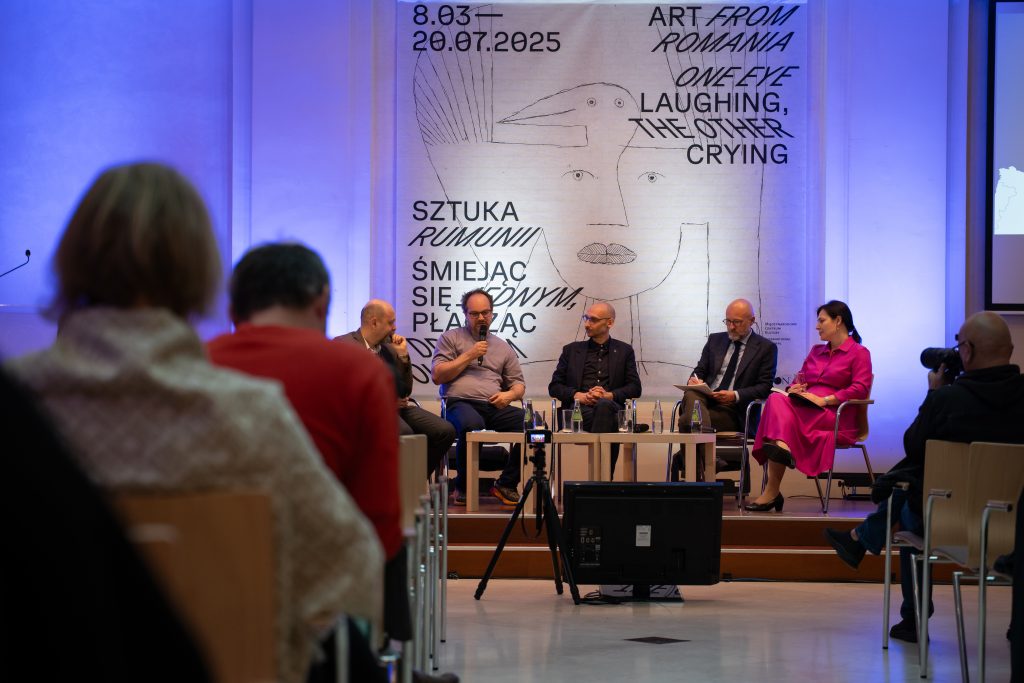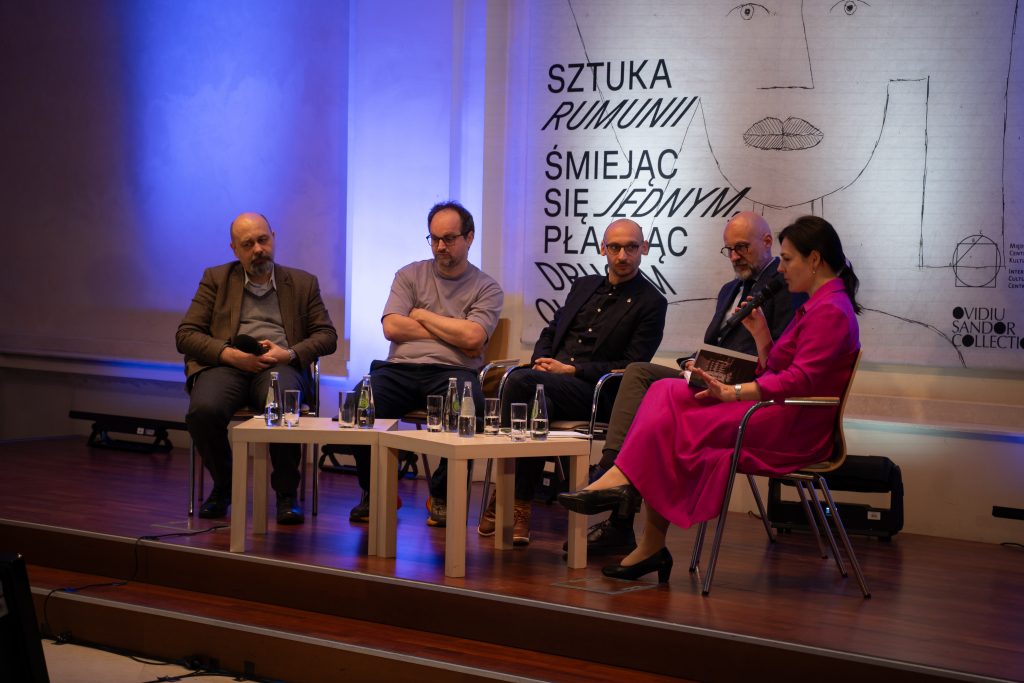On 14 May 2025, the main exhibition of the Three Seas Art Festival titled “Revealing What Is Barely Intuited” opened at the Bunkier Sztuki Gallery of Contemporary Art in Kraków.
The exhibition is the result of international curatorial and artistic residencies held earlier this year, bringing together artists and curators from 14 countries across Central and Eastern Europe.
The title of the exhibition is derived from an essay by Danish social anthropologist Kirsten Hastrup, who describes creativity as a process occurring between talented individuals and the culture in which they exist. This idea inspired the curatorial team to identify shared threads and points of intersection among the participating artists’ practices.
The exhibition features objects, installations, videos, and photographs created specifically for this project. The artists reflect on five guiding concepts: habitation, natural environment, materiality, community, and technology. Each artwork lies at the intersection of these ideas, revealing subtle and unexpected relationships. In several works, the city of Kraków itself becomes a point of inspiration and a symbolic reference.
Participating countries include Austria, Bulgaria, the Czech Republic, Denmark, Greece, Lithuania, Poland, Romania, Slovakia, Slovenia, Hungary, Turkey, Ukraine, and the civic society of Belarus.
The exhibition is curated by Kata Balázs-Miklós, Weronika Plińska, and Agnieszka Sachar and will be on view until 31 August 2025.
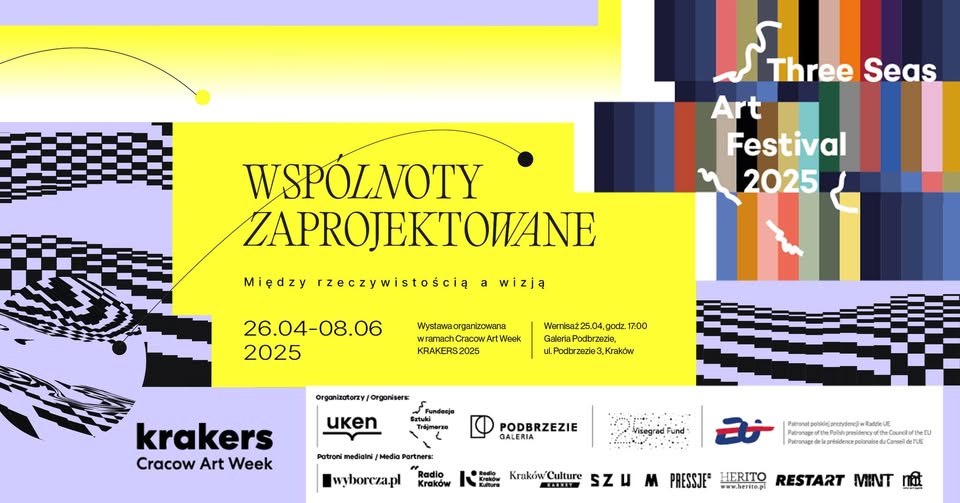
Simultaneously, the Podbrzezie Gallery in Kraków hosts the exhibition “Designed Communities – Between Reality and Vision” (on view until 8 June 2025).
Curated by Katarzyna Wojdyła, the exhibition explores the potential of design as a tool for building communities and shaping identity. The project reflects on how visual communication, graphic design, and spatial design can serve as a language of social connection and participation.
An international group of designers, inspired by the guiding idea of the Three Seas Art Festival, examines the relations between the individual and society.
Among the participating designers are Agnieszka Jacobson-Cielecka, Dagmara and Jacek Latała, Marta Gawin, Studio Otwarte, Spiilka Design Büro (Ukraine), and the Plastic Justice collective, an international research and art project involving partner institutions from Reykjavík, The Hague, Barcelona, London, and Vilnius.
The exhibition invites reflection on how design can strengthen a sense of belonging and openness and contribute to the formation of shared social imagination.
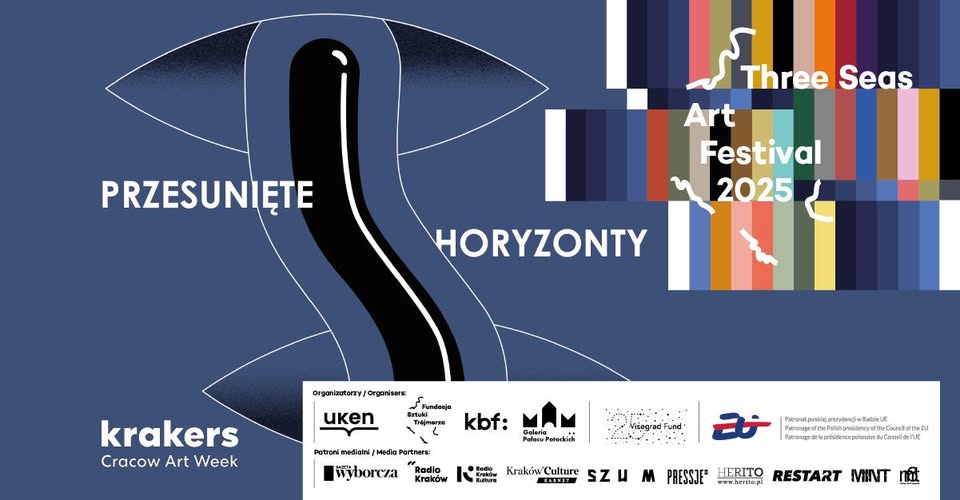
On 15 May 2025, the exhibition “Shifted Horizons”, presented at the Potocki Palace Gallery in Kraków, came to a close.
Curated by Sebastian Bożek and Witold Winek, the show examined the fluid boundaries of perception, exploring how shifts in scale and perspective can shape our understanding of contemporary reality. Featuring works by artists from Poland and across the region, the exhibition questioned whether art can diagnose the condition of modern society and whether perceptual dissonance can become a creative impulse.
The exhibition was also part of Cracow Art Week KRAKERS 2025.
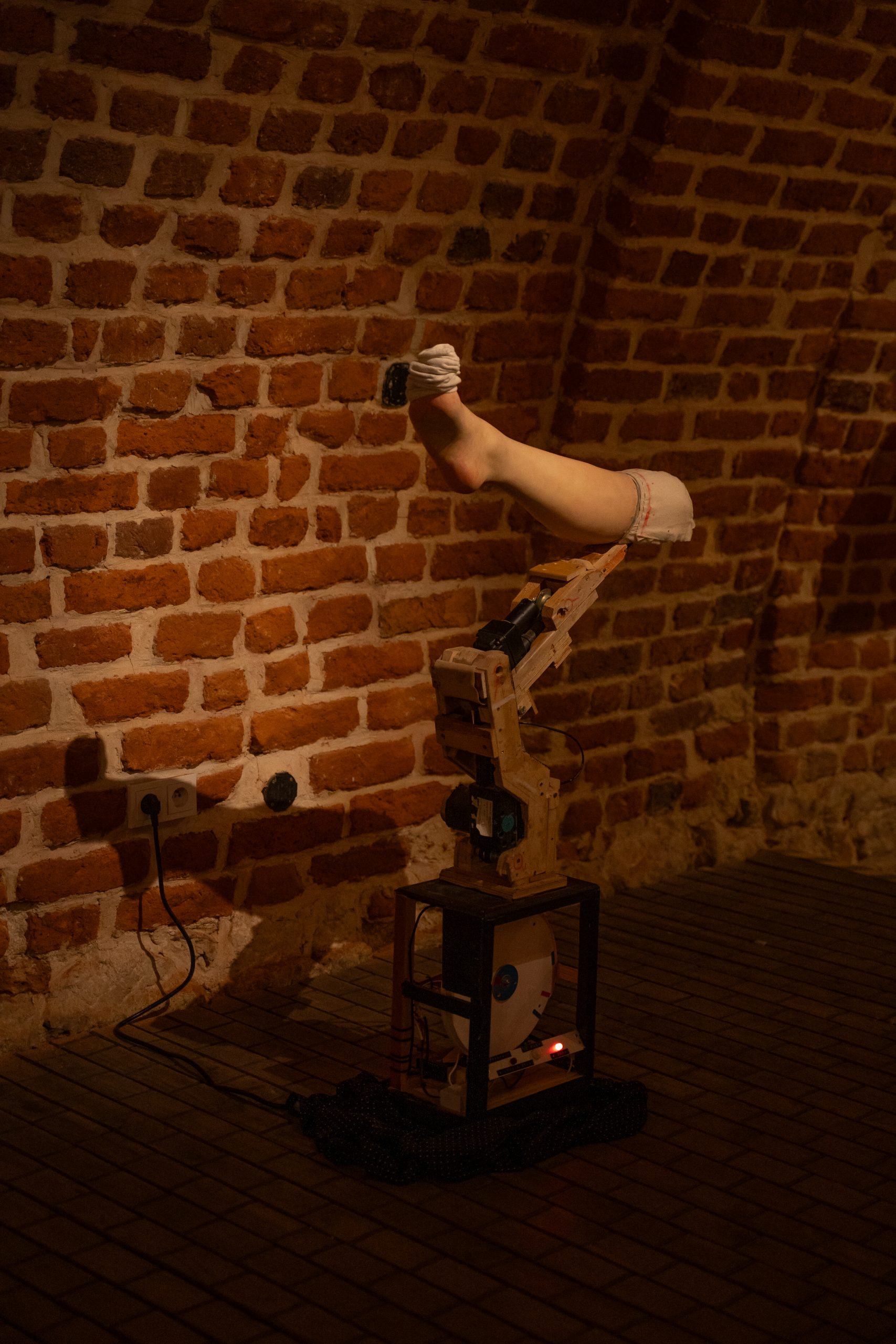
The exhibition draws attention to the issue of the perception of a distorted, oneiric and ambiguous reality and provokes the question of how artists react to the growing sense of absurdity and changes that go beyond the framework of logical order.
Is art a form of diagnostics of the condition of modernity? Or maybe the creative impulse generated by the experience of cognitive dissonance leads to the construction of alternative models of reality? Or maybe we are heading towards imaginary, unreal worlds, perceived as safe and stable?
The horizon, traditionally understood as a symbol of the border between the known and the unknown, is fragmented in this process, thus opening up new narrative spaces.
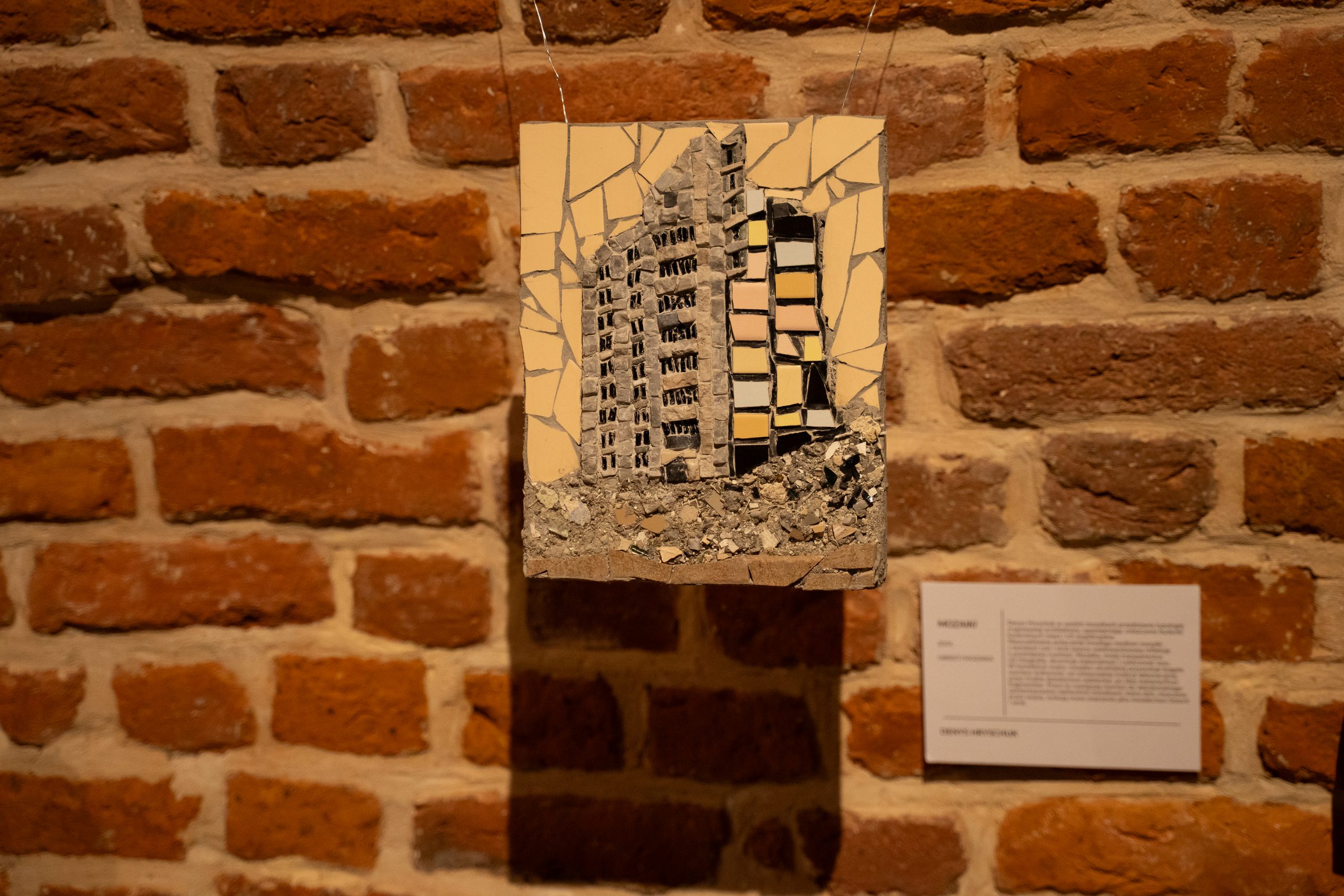
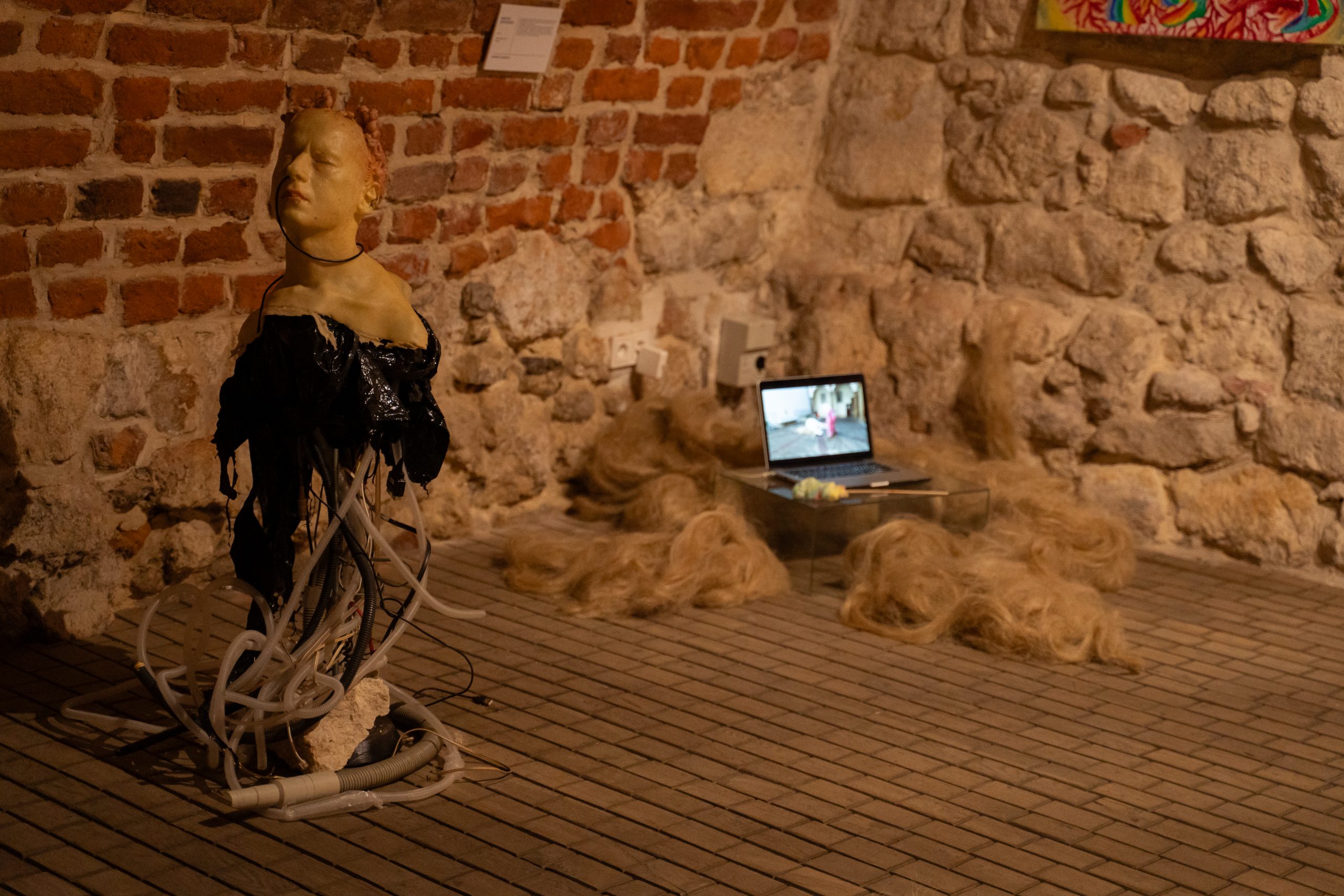
A major intellectual highlight of the festival was the international debate “Common Development – Three Seas Art Festival Debate”, co-organised and hosted by the International Cultural Centre in Kraków (ICC).
The discussion brought together leading experts on Central European culture to reflect on shared heritage, contemporary challenges, and 25 years of the Visegrad Fund’s activity.
Speakers included Maja Wawrzyk (International Visegrad Fund), Paweł Szczepanik (City of Kraków), Ciprian Mureșan (Romania), Małgorzata Kaźmierczak (AICA International), Nina Vrbanová (City of Bratislava), Barbora Kundračíková (Olomouc Museum of Art – SEFO), and Péter Inkei (Budapest Observatory on Cultural Funding).
The panels were moderated by Rafał Solewski and Martyna Nowicka-Wojnowska.
fot. Olesia Kaminska
Another exhibition in the festival programme, “Fragile Images”, is presented at the Ethnographic Museum in Kraków (Dom Esterki, 46 Krakowska St.) and remains open until 29 June 2025.
The show juxtaposes paintings on glass from the Carpathian region with contemporary works by artists from Poland, Slovakia, the Czech Republic, Romania, and Ukraine.
It reflects on the fragility of artistic matter and explores how contemporary creators draw on cultural heritage to reimagine and reinterpret it in the present day.
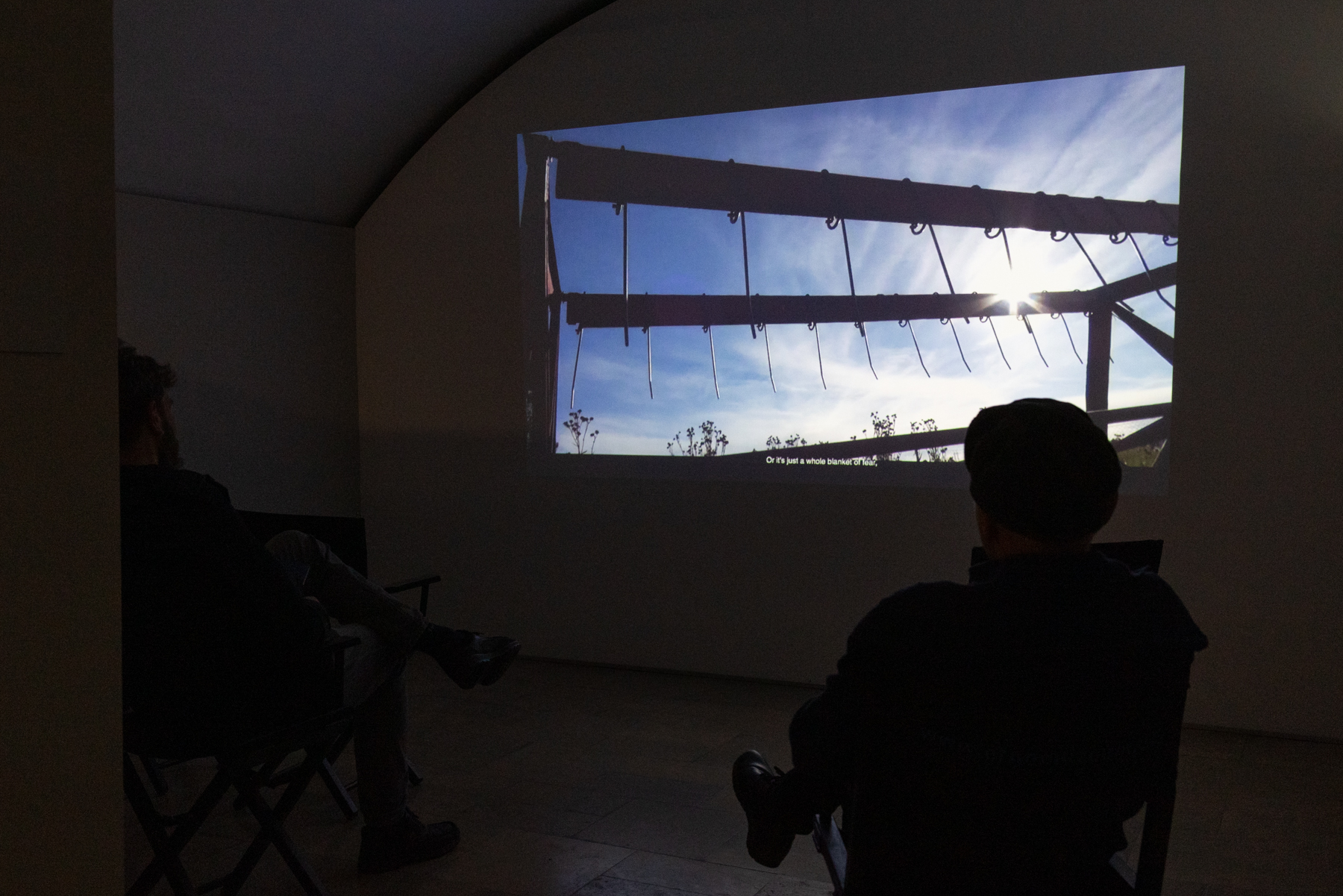
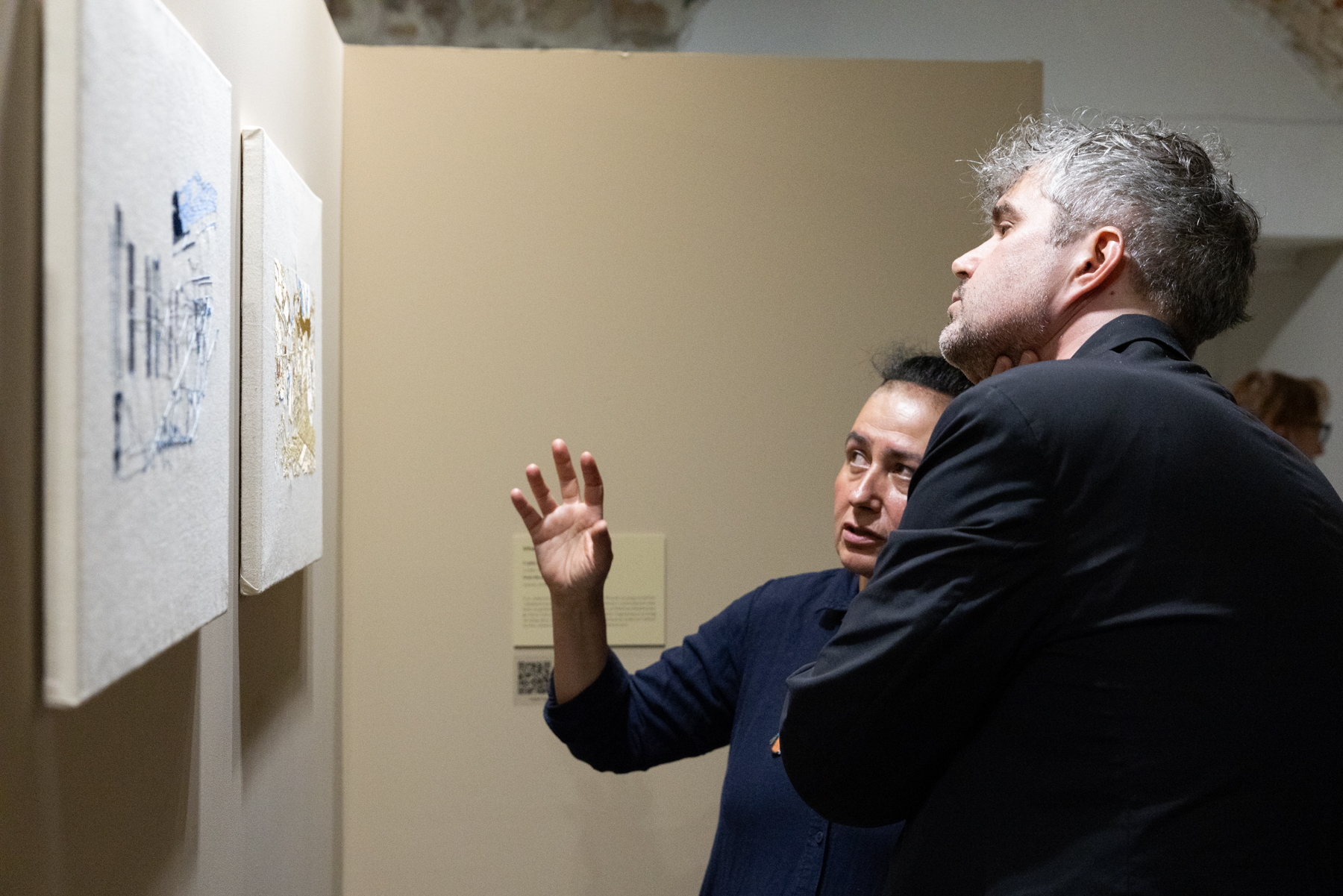
Artyści współcześni: Ivana Sláviková, Jaroslav Pilát, Barbora Šaroun Semberová, Pavel Jestřáb, Irina Botea Bucan, Dan Vazentan, Yana Hudzan, Marzena Kolarz, Andrzej Najder.
Zespół kuratorski: Jana Babušiaková, Maria Działo-Nosal, Grzegorz Graff, Marzena Kolarz, Raluca Oancea
Wystawę można oglądać w galerii Dom Esterki, ul. Krakowska 46 w Krakowie.
…………………………………………………………………………………………………….
English
Until June 29, 2025, you can see the festival exhibition „Kruche obraz / Fragile Images”. The exhibition combines works from the collection of the Ethnographic Museum in Krakow and interventions by contemporary artists from the Czech Republic, Slovakia, Poland, Ukraine and Romania. „Fragile Images” is also a story about two periods of modernization of the region – the one at the turn of the 19th and 20th centuries and the effects of the political transformation of the 1990s and 2000s.
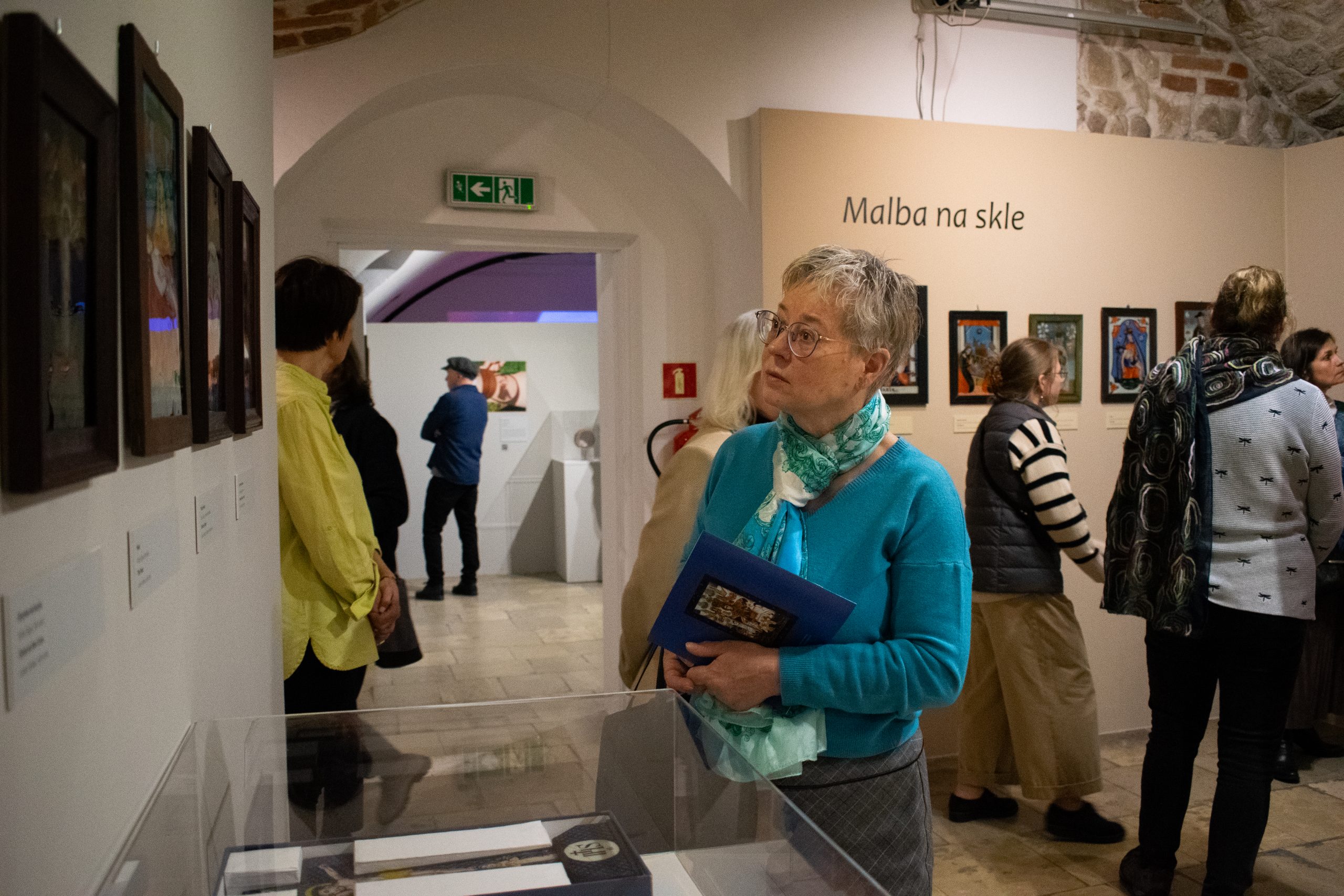
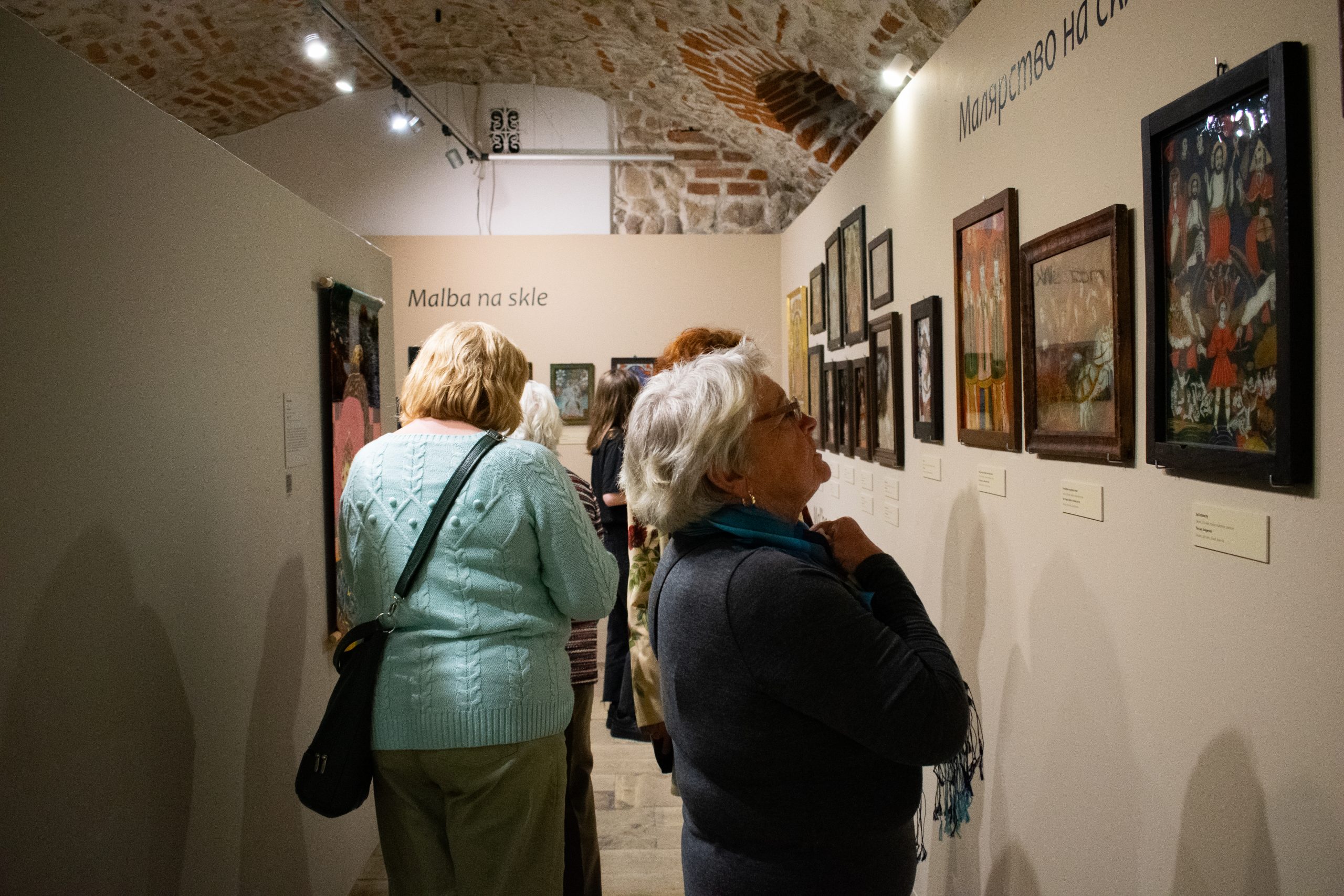
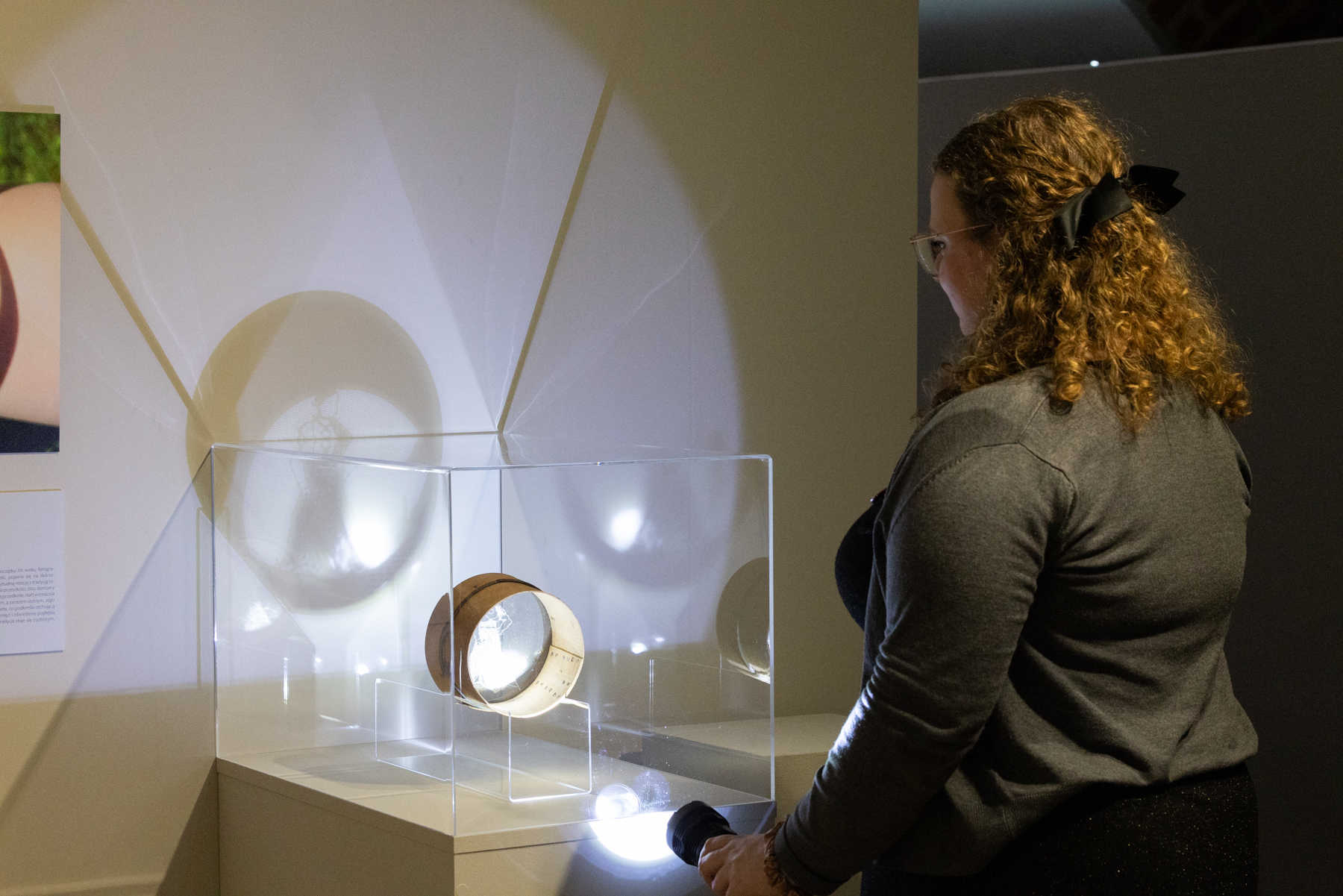
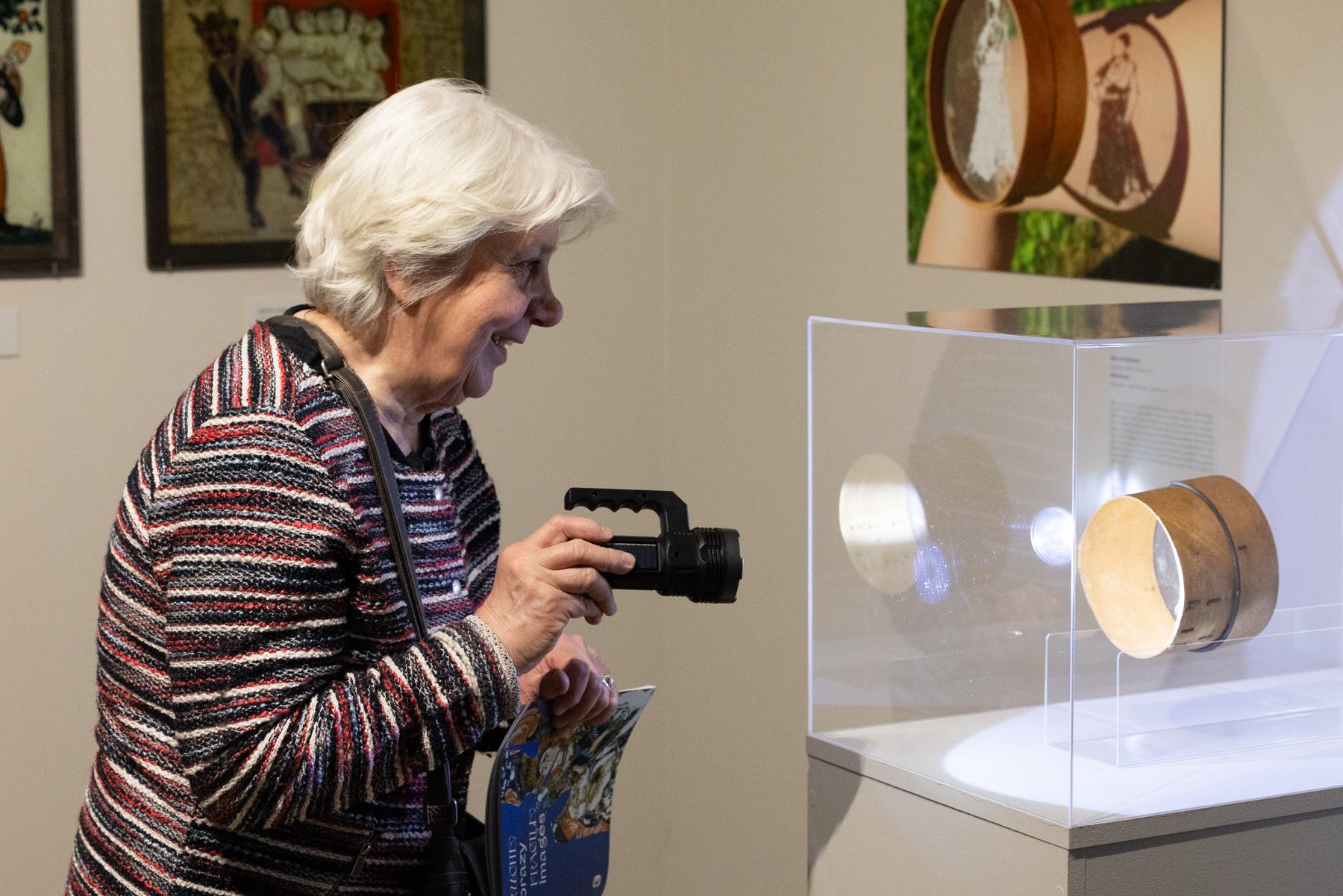
The curatorial team includes Jana Babušiaková, Maria Działo-Nosal, Grzegorz Graff, Marzena Kolarz, and Raluca Oancea.
Participating artists include Ivana Sláviková, Jaroslav Pilát, Barbora Šaroun Semberová, Pavel Jestřáb, Irina Botea Bucan, Dan Vazentan, Yana Hudzan, Marzena Kolarz, and Andrzej Najder.
The Three Seas Art Festival 2025, organised by the Three Seas Initiative Cultural Cooperation Network (3SICCN), highlights the creative and cultural potential of collaboration within the region.
Through a programme of exhibitions, residencies, debates, and artistic interventions, the festival provides a platform for intercultural dialogue and a laboratory for new ideas.
In the spirit of its title, the Festival reveals and explores what is barely intuited, encouraging reflection on art’s role in shaping a more connected, imaginative, and sustainable future for Central and Eastern Europe.
FUNDS
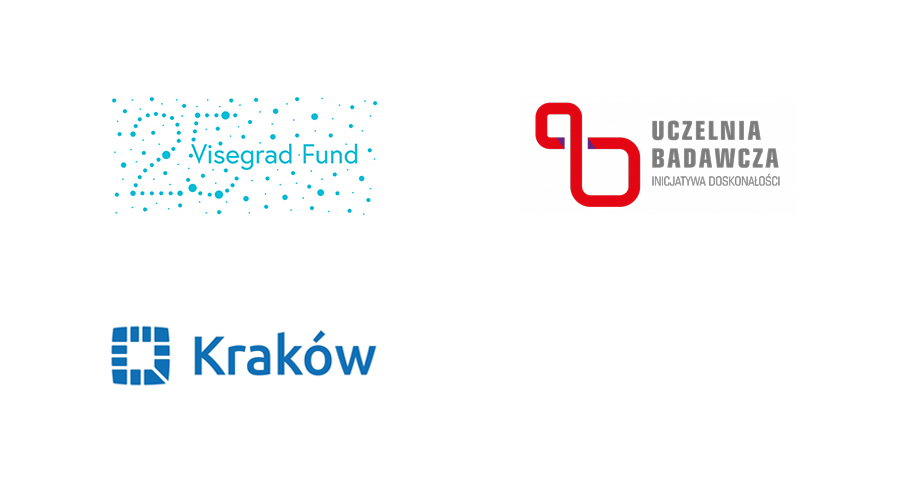
- International Visegrad Fund as part of the „Smart Power of Culture – Challenges of a Common V4 Identity vs. the Three Seas Perspective” project
- University of the National Education Commission, Krakow as part of the „Excellence Initiative – Research University” program and from the UKEN Research Fund
- City of Krakow
